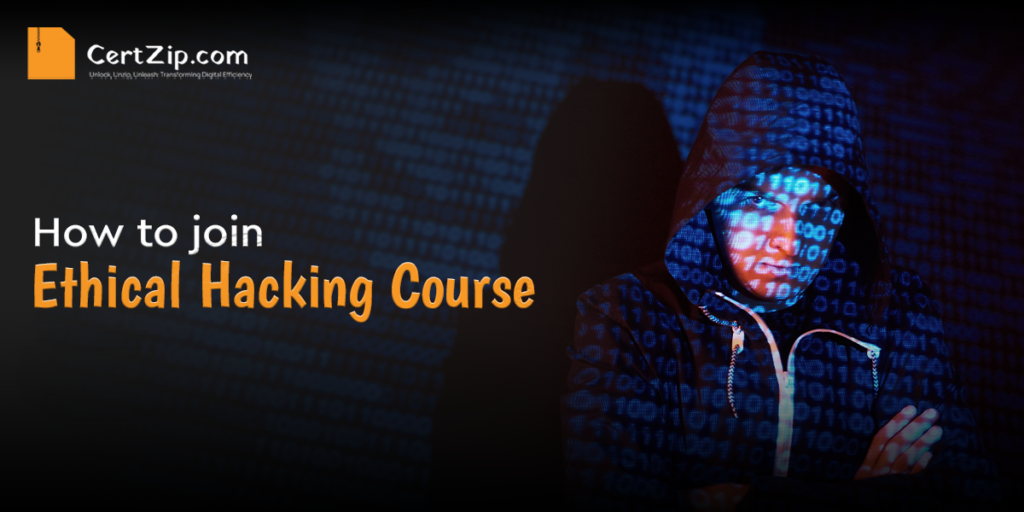In today’s digital age, the need for cybersecurity professionals is at an all-time high. Ethical hacking courses have emerged as an essential pathway for individuals looking to build a career in cybersecurity. This guide will walk you through everything you need to know about joining an ethical hacking course, from the basics to advanced strategies.
What is Ethical Hacking?
Ethical hacking refers to the practice of intentionally probing systems and networks for vulnerabilities, with the permission of the organization. Unlike malicious hackers, ethical hackers work to improve security and protect sensitive data.
Why Choose Ethical Hacking?
- High Demand: Organizations worldwide are increasingly aware of cybersecurity risks, leading to a surge in job opportunities.
- Lucrative Salary: According to industry reports, ethical hackers can earn a competitive salary, often exceeding six figures.
- Career Flexibility: Ethical hackers can work in various sectors, including finance, healthcare, and government.
Benefits of Taking an Ethical Hacking Course
1. Comprehensive Knowledge
A well-structured ethical hacking course will cover a range of topics, including:
- Network Security
- Penetration Testing
- Web Application Security
- Mobile Device Security
2. Hands-On Experience
Courses often include practical labs that simulate real-world scenarios, allowing you to apply what you’ve learned in a controlled environment.
3. Industry Recognized Certifications
Completing an ethical hacking course often leads to certifications like Certified Ethical Hacker (CEH), which are recognized by employers.
How to Choose the Right Ethical Hacking Course
When selecting a course, consider the following factors:
Course Content
Curriculum Overview
Look for a curriculum that covers essential topics, including:
- Introduction to Ethical Hacking
- Footprinting and Reconnaissance
- Scanning Networks
- System Hacking
Advanced Modules
For those looking to deepen their expertise, check if the course offers advanced modules such as:
- Malware Analysis
- Incident Response and Forensics
- Advanced Penetration Testing Techniques
Course Format
Online vs. In-Person
Decide whether you prefer online courses, which offer flexibility, or in-person classes for direct interaction with instructors.
Self-Paced vs. Instructor-Led
Choose between self-paced learning, allowing you to study at your own speed, or instructor-led courses for structured guidance.
Cost and Duration
Budget Considerations
Ethical hacking courses can range from a few hundred to several thousand dollars. Consider your budget and look for courses that offer payment plans or scholarships.
Time Commitment
Assess how much time you can dedicate to the course. Some may require a few weeks, while others might span several months.
Steps to Enroll in an Ethical Hacking Course
1. Research Available Courses
Online Resources
Utilize websites like Coursera, Udemy, and LinkedIn Learning to find highly-rated courses. Look for reviews and ratings to gauge the quality of the program.
2. Verify Accreditation
Ensure that the course provider is accredited and recognized in the industry. This will enhance your credibility upon completion.
3. Prepare Your Application
Required Prerequisites
Some courses may have prerequisites, such as basic knowledge of networking or programming. Brush up on these topics if necessary.
4. Financial Aid Options
Many institutions offer financial aid or installment payment options. Don’t hesitate to inquire about these opportunities.
5. Register and Start Learning
Once you’ve chosen a course that fits your needs, complete the registration process and prepare to dive into the world of ethical hacking!
Essential Skills for Ethical Hackers
1. Programming Knowledge
Familiarity with programming languages such as Python, JavaScript, or C++ is crucial for ethical hackers.
2. Networking Skills
Understanding network protocols, IP addressing, and firewalls is essential for identifying vulnerabilities.
3. Problem-Solving Abilities
Ethical hackers must think critically and creatively to devise solutions to complex security issues.
Best Ethical Hacking Courses to Consider
Top Picks for Ethical Hacking Course with certification cost
1. Certified Ethical Hacker (CEH) by CertZip
- Overview: This globally recognized certification covers key ethical hacking concepts.
- Duration: 5 days (Instructor-led) or self-paced.
- Cost: Approximately $1,199.
2. Offensive Security Certified Professional (OSCP)
- Overview: Known for its rigorous hands-on training, the OSCP is highly respected in the industry.
- Duration: Varies; typically requires a minimum of 90 days of lab access.
- Cost: Starts at $999.
3. CompTIA PenTest+
- Overview: Focuses on penetration testing and vulnerability assessment.
- Duration: Self-paced.
- Cost: Around $370.
Other Notable Mentions
- Udemy Ethical Hacking Course: Budget-friendly and flexible.
- Coursera Cybersecurity Specialization: Offers a broader range of topics.
Start Your Ethical Hacking Journey Today
Embarking on an ethical hacking course can be a game-changer for your career in cybersecurity. By acquiring the necessary skills and certifications, you will position yourself as a valuable asset in the job market.
Are you ready to take the first step toward a rewarding career in ethical hacking? Enroll in our Ethical Hacking Course today! Discover a world of opportunities and become a certified ethical hacker, ready to tackle the challenges of cybersecurity.


